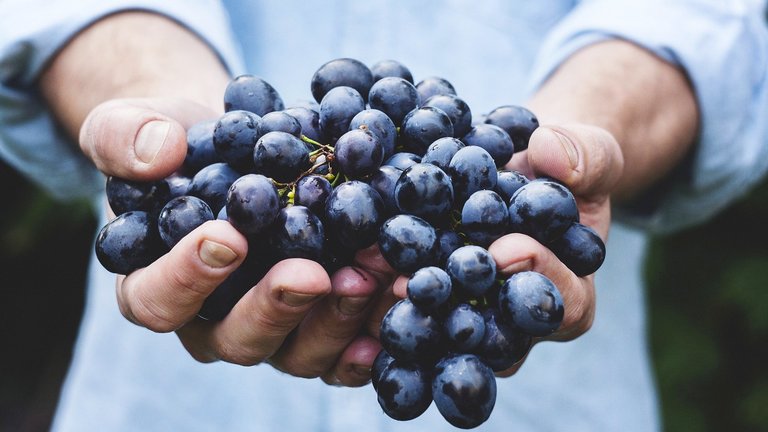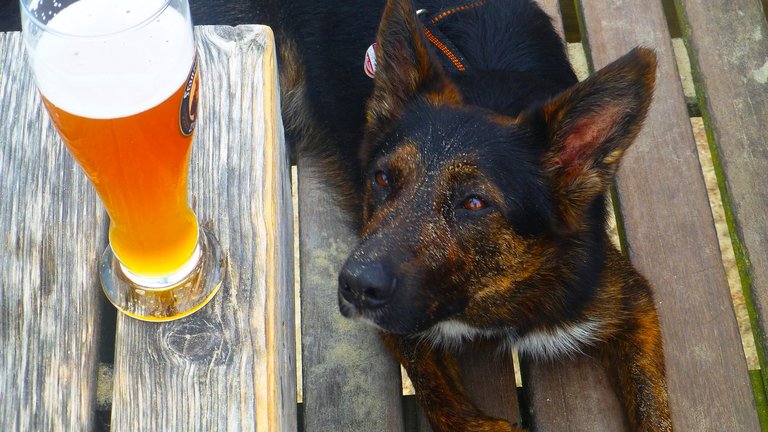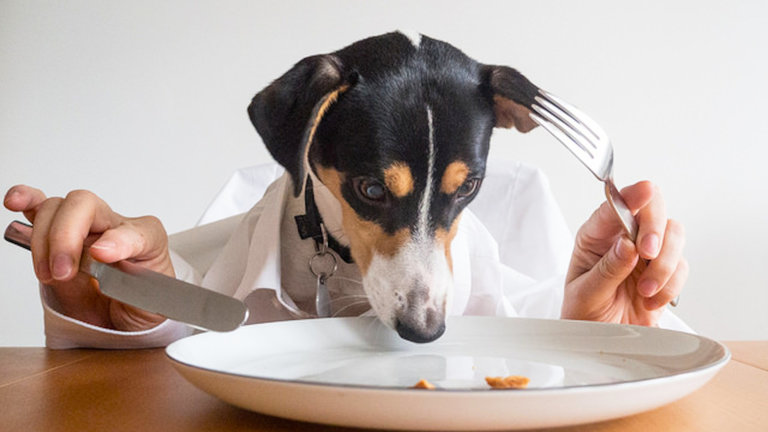11 Harmful Foods For Dogs
"Can dogs eat grapes?" and other questions answered
My dog loves to “help” me cook. He plonks himself by my feet ready to catch any fallen ingredients and offers to clean up the off-cuts!
A symbiotic relationship like this can work well if the household chef knows which human food dogs can eat, because some foods are toxic to dogs. The health risk also applies when feeding table scraps and left-over meals which might contain ingredients that are toxic to dogs (such as onion!)
Furthermore, feeding your dog tidbits, if overdone, can lead to an obese dog before you know it.
TIP: Double check the ingredients list to avoid accidentally giving your pooch food poisonous to dogs.
What Should Dogs Not Eat? 11 Foods Toxic to Dogs
1. Can dogs eat chocolate & cocoa?
NO! Cocoa contains theobromine which adversely affects the heart, central nervous system, lungs and liver of dogs. Typical signs of intoxication include excitement, trembling, panting and collapse. The greater the cocoa content of chocolate the more toxic to dogs it is.

2. Can dogs eat onions?
NO! Onion (raw, cooked, powdered) when eaten by dogs, will destroy the red blood cells resulting in anemia. Symptoms typically include weakness 3-5 days after consumption, red tinged urine and exercise intolerance.
3. Can dogs eat garlic?
NO! Like onion, garlic (raw, cooked and powdered) can destroy your dog’s red blood cells. The effects of this toxic food for dogs can be cumulative.
4. Can dogs eat grapes, raisins or sultanas?
NO! Grapes (and its derivatives) can cause vomiting diarrhea, weakness, staggering gait and abdominal pain approx. 24 hours after consumption. Grapes are so toxic to dogs that their consumption can result in kidney failure. Discover what fruits dogs can eat here.

5. Can dogs eat avocado?
NO! Avocado contains persin, which can cause abdominal upset and symptoms such as vomiting and diarrhea. The skin and seed portion of the avocado fruit are most toxic to dogs but even the flesh on some varieties of avocadoes is toxic to dogs. The leaves and bark of avocado trees are also poisonous and avocado seeds can cause intestinal obstruction if swallowed.
6. Can dogs have coffee, coffee beans, tea and caffeinated drinks?
No! Caffeine containing foods are harmful to dogs. Caffeine can affect the heart, lungs and central nervous system of dogs. Symptoms of intoxication include hyper excitability, vomiting, tremors and convulsions.

7. Can dogs eat nuts?
Not Macadamia nuts, which can cause vomiting, muscle and joint pain, weakness of hind legs and wobbly gait 6-24 hours after consumption. The toxic effects may persist for 48 hrs.
8. Can dogs ear stone fruit seeds?
No! The seeds ofpeach, plum, apricot and cherry contain cyanide and if eaten can cause vomiting, rapid and irregular heart rate, heavy breathing and coma. Larger seeds also pose a risk of causing intestinal blockage that requires surgical removal.
9. Can dogs eat bread dough and pizza dough?
NO! The high fat, salt and calorie content of pizza makes it an unsuitable human food for dogs. Uncooked pizza dough can rapidly expand in the stomach as the yeast is activated causing painful, potentially life-threatening bloat.
10. Can dogs have Xylitol artificial sweetener?
NO! This artificial sweetener (found in sugar free gums, toothpaste, sugar free sweets and sugar free peanut butter) causes insulin release in dogs resulting in a sudden drop in blood sugar levels. Weakness, collapse and seizure can occur within half an hour of consumption. Xylitol has also been linked with liver failure and should be considered very toxic to dogs.
11. Can dogs have alcohol?
NO! All forms of alcohol are toxic to dogs. Dogs are much more sensitive to alcohol than humans. Typical signs include vomiting, disorientation and stupor progressing to cardiac arrest.

Why are these foods bad for dogs?
The physiological makeup and digestive capacity of dogs is quite different to that of a human, therefore some of the foods that are healthy for us can be fatally toxic to dogs. The toxic effects of these foods vary greatly between dogs and can be hard to predict.
For example, some dogs happily eat fallen avocados in their backyard on a regular basis while other dogs will experience a serious tummy upset after only a small amount.
The effects of toxic food for dogs are dose dependent – the higher the dose the greater the intoxication. Likewise, small dogs are more at risk from food poisonous to dogs than the larger breeds. So, pay attention to what your dog is eating and think twice before giving him your leftovers and dog proof your pantry and fridge.
If your dog eats something that is toxic to dogs, try to determine how much has been eaten and then seek immediate advice from your veterinarian.

Stay on top of your dog’s health and wellness with your free WAGSTA tracking app. WAGSTA, it’s good for you and great for your dog!
